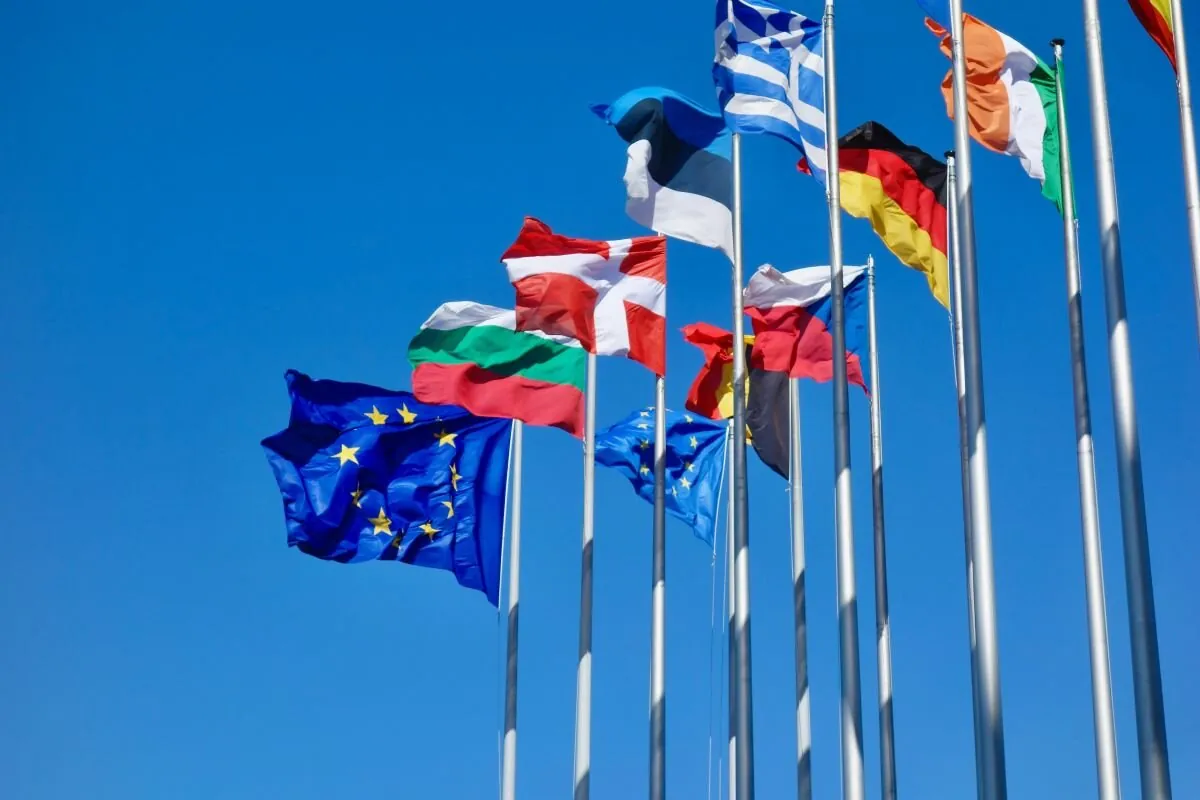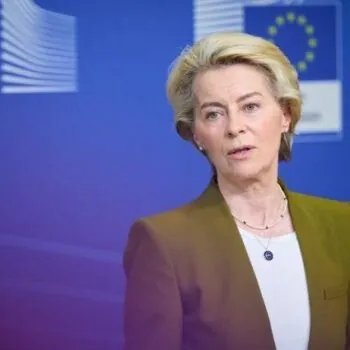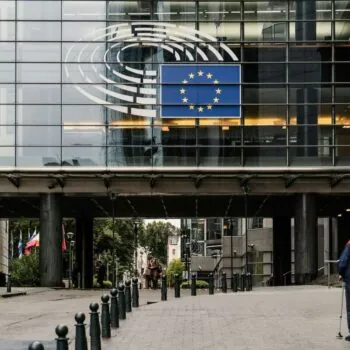The outcome of COP30 will test the resilience of multilateral cooperation and the international community’s ability to act on climate. To stay relevant in a rapidly shifting global landscape, at COP30 the EU needs to drive impact and maintain its role as a bridge-builder. Active engagement by EU leaders, a credible and ambitious NDC, signals on climate finance, progress on the Global Goal for Adaptation and adaptation finance, engagement on unilateral measures, and support for the Action Agenda are central to an EU approach that balances asks and offers.
The EU has a strong track record of shaping COP outcomes through proactive engagement and coalition-building. Once again, it will play a critical role in working with others to shape COP30 outcomes. Building on the recent council conclusions on climate finance and COP30, the EU can enhance its geopolitical role by projecting unity and reinforcing its role as bridge-builder and middle-ground convener within the UNFCCC. This applies across the negotiation tracks, as well as in advancing the Action Agenda and showcasing real-world delivery.
A well-managed domestic transition to clean energy strengthens Europe’s resilience to supply and price shocks, protects against unexpected constraints in increasingly complex geopolitics, and enhances competitiveness and trade relationships. The EU’s Global Climate and Energy Vision positions the EU as a shaper of a global clean and resilient transition, making the case for impactful EU climate and energy diplomacy.
The recent UN General Assembly (UNGA) saw an overwhelming recognition from developed countries, emerging markets and developing economies (EMDEs) of the importance of accelerating climate action. It is also the smart economic choice. With Europe warming twice as fast as global average, weather- and climate-related events caused EUR 162 billion in economic losses between 2021 and 2023.
The EU plays a pivotal role in sustaining global commitment to multilateral climate action. Since 2015, the Paris Agreement has shown that cooperation delivers results. In line with its COP30 position, the EU must be a vocal advocate for this progress, while making clear that current efforts remain insufficient to keep 1.5°C within reach. Implementation is essential to harness the growing opportunities from market shifts supporting the global energy transition.
Driving impact and maintaining its role as a bridge-builder will depend on the EU’s ability to act across these key areas:
The European Commission and Member States can work with Brazil and others to build a strong Leaders’ segment at the start of the COP30. Early confirmation of EU leaders’ participation would send a powerful signal. Unified, high-level messages can emphasise a shift from commitment to implementation and demonstrate support for closing ambition and investment gaps. The Leaders’ Segment must send a clear message that leaders are committed to addressing the ambition gap and supporting an outcome which covers an entire package across finance, adaptation, mitigation, nature, and governance reform. It is critical that all elements are featured for the package to work and meet the varied demands of both developing and developed countries.
The EU can lead diplomatic efforts to build political momentum around a Leaders’ media moment, creating space for new statements and building on the recent High Ambition Coalition statement and the Joint Letter which supports a just and equitable energy transition. This includes outlining next steps for the Global Energy Transitions Forum, and recognising growing momentum and interest behind electrification.
Leaders should further emphasise the need for the operationalisation of a clear, credible and politically compelling “Baku to Belém Roadmap” that outlines how to achieve the USD 1.3 trillion goal by 2035. This can raise the profile of the urgent need to scale up adaptation finance, particularly for LDCs and SIDs.
Member states can coordinate with other donor countries to reaffirm existing or announce new climate finance pledges, Official Development Assistance for climate action, and further commitments on climate finance, including for adaptation.
While not mentioning the EUs own NDC, the ENVI COP30 conclusions urge Parties, in particular major emitters, whose NDCS are not aligned with the 1.5°C goal to update and strengthen their targets. An ambitious 2035 NDC is central to any EU offer. Ongoing delays and perceived hesitation have weakened the EU’s leverage over other major emitters. For example, China has announced plans to cut its Greenhouse Gas (GHG) emission by just 7–10% by 2035 from peak levels, adding it would “strive to do better.”
The EU still has a chance to swiftly adopt its 2035 NDC and 2040 target before the COP30 Leaders’ Summit. Recent Commission initiatives and a letter from President von der Leyen, Member States provided with sufficient reassurance around economic and social aspects of the 2040 target to adress concerns around the viability of industrial decarbonisation. As a result, European leaders adopted clean European Council’s conclusions on competitiveness on 23 October, recognising the green transition, resilience, and competitiveness go hand in hand and are essential to Europe’s long-term prosperity. These are expected to unlock the current deadlock among environmental ministers and pave the way for formal adoption of both targets at the Extraordinary ENVI Council on 4 November.
While the limited coverage of existing NDCs reduces the meaningfulness of the upcoming NDC Synthesis Report, it will nevertheless highlight a gap between the submitted NDCs and the ambition needed to stay within the 1.5°C goal. The ENVI conclusions implicitly acknowledge this gap, underscoring the need for a “dedicated political space and negotiated outcome at COP30 that acknowledges the findings of the UNFCCC NDC Synthesis Report and addresses the collective level of ambition and implementation”.
The EU should support discussions at COP30 to address and close the NDC ambition gap. Beginning with sending out a strong message at the World Leaders’ Summit, together with other leaders, building on the open letter on the Global Energy Transitions Forum. This would bolster efforts for a COP cover decision that recognises the gap and scales support for accelerated energy transitions and sectoral action while working towards annual COP-led process to review of NDC implementation. A strong outcome on the Just Transition Work Programme should include specific provisions for support for just energy transitions at country and sectoral level, with a clear link to the clean energy transition. In this context, the EU will need to engage on unilateral measures which is laid out further below.
Following COP29’s agreement to set the New Collective Quantified Goal, targeting at least USD 300 billion in international climate finance by 2035, and mobilising USD 1.3 trillion from all sources by 2035, the EU and its Member States must arrive at Belém with concrete proposals to deliver on those goals.
The growth potential of EMDEs offers major opportunities for European businesses and investors. Providing public and private finance gives the EU a competitive advantage in its engagement with EMDEs and relationships with vulnerable countries, while creating leverage towards other countries with the ability to continue or start providing climate finance.
An EU offer is critical as several major EU climate finance pledges are set to expire in 2025 or 2026. Germany committed to increase its annual climate finance contributions from the federal budget to EUR 6 billion by 2025 while France and Ireland have committed to EUR 6 billion and EUR 225 billion for international climate finance, respectively. Those are among the EU Member States without a post-2025 pledge. So far, only the European Commission, Belgium, Greece, Italy, and Portugal have set international climate finance goals for the period following 2025.
Member states and the Commission should have clarity about potential financial commitments before COP30, and signal that, at minimum, current public finance levels will be maintained.
The EU’s Global Gateway can underpin a coordinated approach towards new and renewed financial commitments, using innovative approaches such as levies, guarantees and de-risking to unlock private investment. The EU and Member States, as shareholders, should continue to support climate work under the mandates of International Monetary Fund and the World Bank.
The EU’s recent climate finance conclusions look “forward to Parties recognizing the relationship between Article 2.1(c) and Article 9, and to a substantive decision on Article 2.1(c) at CMA7”. Outlining the future finance agenda under the UNFCCC, potentially as part of a COP cover decision, can create space to discuss Articles 9.1 and 9.2, the alignment of financial flows under Article 2.1(c), and the bridging elements for mobilising finance as covered by the “Baku to Belém Roadmap”.
An adaptation package is central to the Brazilian COP30 presidency’s vision and a key priority for LDCs and SIDS, traditional EU allies in the climate process. Strengthening adaptation in other countries is also an investment in security: it supports resilient supply chains and fiscal stability, benefitting European companies and businesses. Additionally, elevating the importance of climate impacts in the EU and the EU’s commitment to work across regions and with partners towards adaptation and resilience demonstrates a unified sense of prioritisation based on partnership in knowledge building, policy and action. Positive dynamics at COPs can be built through early breakthroughs.
At COP30, the EU can foster momentum by working towards an early agreement on finalising the Global Goal on Adaptation (GGA) through flexibility on indicators for means of implementation. At the same time, a successful adaptation package rests on adaptation finance. While many climate finance commitments expire this year, Member States acknowledge that international public climate finance remains essential for vulnerable countries and communities, including LDCs and SIDS. Recent conclusions also underscore the need for agreement on GGA indicators. They also note the EU and its Member States as the largest contributors to international public climate finance for adaptation, including in the context of the Glasgow urge to double adaptation finance by 2025. It will be important for the EU to be vocal about maintaining this commitment.
The EU needs to carefully consider engagement on demands from LDCs and SIDS, including to build bridges for a potential response to the NDC ambition gap. In recent conclusions, the EU already acknowledges their finance needs in particular. The EU can further build on its Dialogue on Climate Finance for SIDS and LDCs at the Financing for Development Conference in Sevilla in July and the proactive engagement of Members States in the Champions Group on Adaptation Finance.
Meaningful adaptation finance contributions should include scaling public and private finance with a strong role for grants and concessional resources, along with measures to increase efficiency and impact of finance, as well as commitments by Member States and EU Institutions to employ multi-year, programmatic funding. In addition to pledges, it will be necessary to consider a pathway to a potential goal on adaptation finance by building on the Glasgow doubling.
Member States must also leverage their roles within multilateral development banks and board members of multilateral climate funds to ensure that these institutions respond to longstanding issues of adaptation finance access frequently raised by SIDS and LDCs.
Unilateral measures, including the EU’s Carbon Border Adjustment Mechanism (CBAM) and deforestation regulation, remain contentious within UNFCCC negotiations. Recent agenda issues at COP28 and COP29 have distracted from vital climate progress elsewhere in negotiations, and risk straining the EU’s trade relationships with developing countries.
To alleviate concerns of other countries towards EU legislation including CBAM, the Commission recently indicated it would maximise support for adaptation and mitigation in developing countries through the Global Europe instrument. But clearer commitments and enhanced diplomatic engagement are needed to rebuild trust with trade partners. Joining the new “Integrated Forum on Climate Change and Trade” proposed by Brazil would allow the EU to shape the debate and promote practical outcomes.
To demonstrate credibility and commitment to climate action and cooperation, the EU should develop a strategic approach to support Brazil’s efforts in creating a unified Action Agenda, connecting it with the Leaders’ segment, and reinforcing strong signals across key negotiation themes. The Action Agenda can serve as an engine for implementation to strengthen legitimacy and credibility.
The EU should use the Action Agenda to mobilise North-South partnerships, demonstrating progress on financing equitable energy transitions and highlighting new tools, mechanisms, and funding sources to support EMDEs and delivery on its domestic energy transition. This can include building on existing alliances such as the EU’s GETF and the UK’s Global Clean Power Alliance (GCPA), expanding multi-stakeholder coalitions, advance practical solutions on resilience, and crucially, supporting a new global high-level dialogue on transitioning away from fossil fuels.
The EU can further leverage domestic progress in phasing out coal by announcing it will join the Powering Past Coal Alliance (PPCA), demonstrating leadership on coal phase-out. National Adaptation Plans should be integrated into Country Platforms to make adaptation more investable and aligned with finance goals.
By pairing credible ambition with building alliances across negotiation groups, the EU can strengthen its international impact at COP30 and the global commitment to multilateralism. Building coalitions, advancing finance and adaptation, and engaging constructively on trade and the Action Agenda will help ensure COP30 marks a decisive step from commitment to collective implementation and to keep 1.5°C in reach. Overall, this can strengthen effectiveness and credibility of the international climate process-and reinforce the EU’s role as geopolitically relevant pathfinder for climate solutions.
The content of this blog has benefitted significantly from the contributions of numerous teams across E3G.


